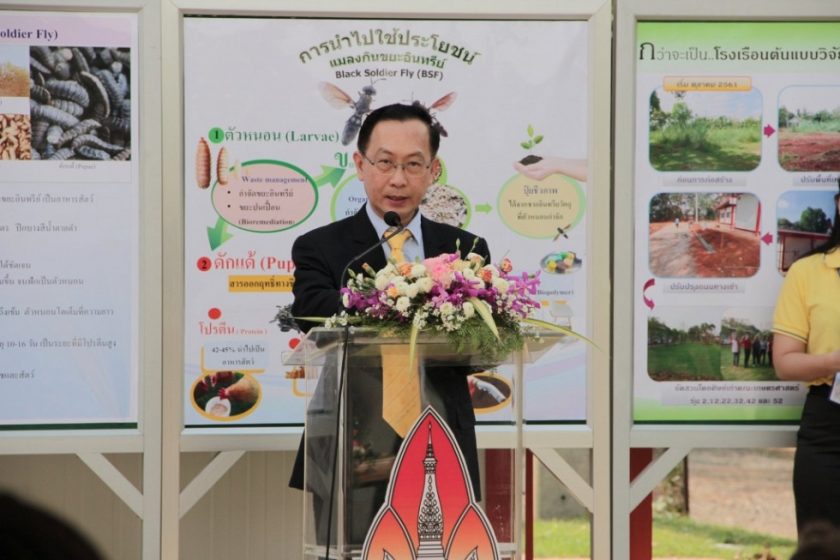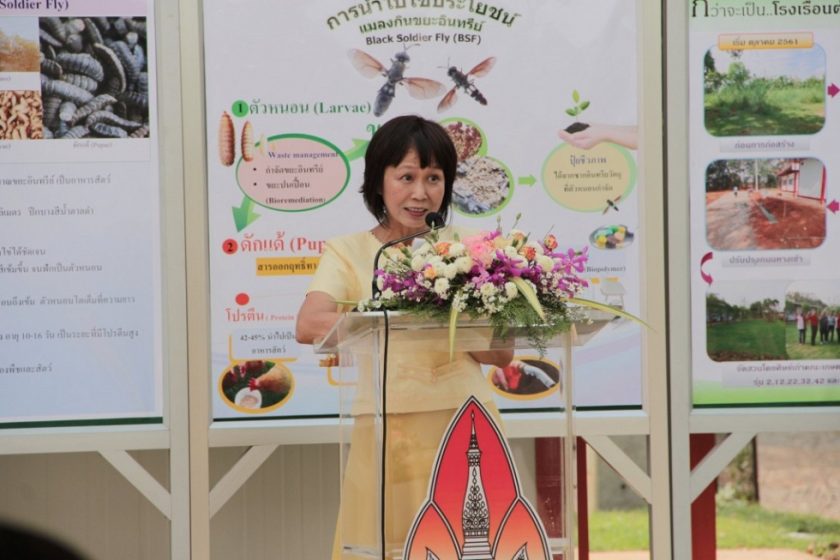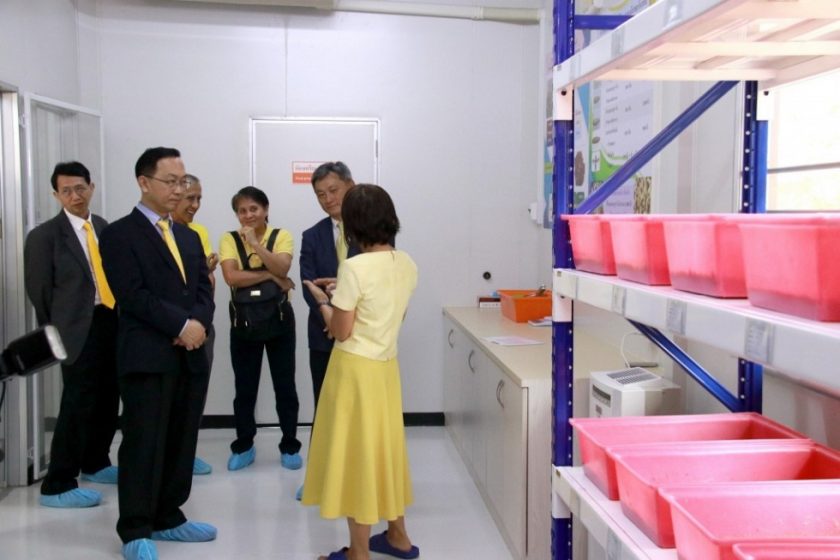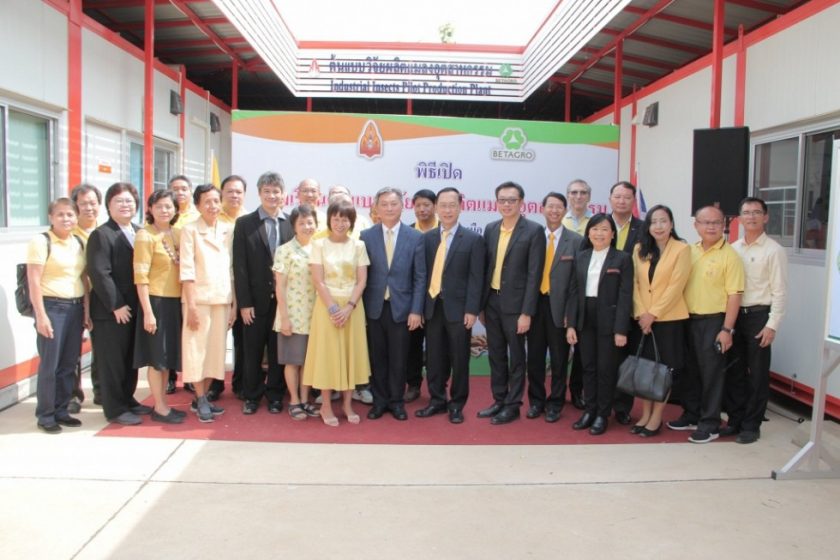Innovation and Enterprise Section, KKU holds an opening ceremony for the prototype research and production house for industrial insect at Faculty of Agriculture on May 8, 2019.
May 8, 2019 – Khon Kaen University’s Innovation and Enterprise Section held an opening ceremony of the Prototype Research and Production of Industrial Insect House. Assoc. Prof. Charnchai Panthongviriyakul MD., Acting President of the university; Prof. Dr. Supachai Patumnakul, Acting Vice President for Innovation and Enterprise; Assoc. Prof. Wuthikrai Bunkhum, Associate Dean for Research and Innovation of Faculty of Agriculture; Prof. Yupa Hanbunsong, Head of Entomology and Plant Disease Department, Faculty of Agriculture; Mr. Wanat Taepaisitpong, General Manager of Betagro Public Company joined in the ceremony.
The Prototype Research and Production of Industrial Insect House has an aim to commercially produce and conduct research on insects that feed on organic wastes or the black soldier flies in order to reduce organic wastes and find bioactive compounds that can be of use.

Assoc. Prof. Charnchai Panthongviriyakul MD, Acting President of Khon Kaen University said, “Khon Kaen University’s visions and missions include constructing knowledge that creatively develops the society and the economy. This prototype house directly answers the missions. The project is the result of the academic collaboration and joint investment between Betagro Public Company and KKU’s Commercial Investment Fund and Prof. Yupa Hanbunsong’s knowledge from her and her team’s research on organic waste eating insects conducted at Department of Entomology and Plant Disease, Faculty of Agriculture for commercial purpose.
“Nowadays, benefits from insects are widespread. This project is the first of its kind that farms millions of this kind of insects for an industrial purpose. The insect production is considered Circular Economy – since it circulates worthy use of natural resources as well as increases management efficiency of wastes. The result can be viably used in livestock industry, for example, the use of worms from manure and production of fertilizers under an environmental friendly process. Therefore, this project truly helps develop research work that will promote innovation for the future,” Acting President of Khon Kaen University said.
Mr. Wanat Taepaisitpong, General Manager of Betagro Public Company explained about the use of insects in livestock industry. In the processing of pork meat, blood is an outcome. Some is sold and some becomes waste that in turn is disposed of by earth filling, which affects the environment. The blood is also used to feed flies, the excretion of which is made into bio fertilizers. This means one day, this kind of waste will be gone.
“In the future, the insects can be used to dispose of organic wastes such as vegetables and meat since nowadays, this kind of wastes is enormous at fresh markets. Therefore, the insects will be useful for our waste management,” Mr. Wanat said.

Prof. Yupa Hanbunsong, Head of Entomology and Plant Disease Department, Faculty of Agriculture explained that the project is the outcome of research performed in laboratories. The black soldier flies have as a result been fed in order to produce worms that will in turn dispose of organic wastes, such as those coming from livestock farms. Besides, the pupae themselves also have other benefits such as being a high-protein animal feed. We are also conducting research on some chemical in pupae that can be used as medicine.
“The life cycle of this fly is around 1 month. It is a safe natural fly that does not carry human or animal disease. It feeds on all types of bio-wastes. Our house produces 3 million worms per month, which is enough for use in farms. This kind of house has been planned to be constructed around the country for organic waste disposal purpose. A 1000 5-day old worms are able to eat one kilogram of organic wastes within 2 weeks. When they are fed, they excrete and we will get fertilizers. After this, the worms become pupae and return to the nature without doing any harm,” Prof. Yupa said.
The Prototype Research and Production of Industrial Insect House is the academic collaboration and joint investment between Betagro Public Company and is also supported by Classes 2,12,22,32,42, and 52 of Faculty of Agriculture alumni for the landscape improvement of the house.







